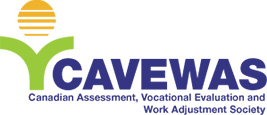When a client starts experiencing increasingly demanding employer expectations, the decision to leave may seem like a rational choice. A career change can fuel one’s passion, maintain work-life balance, and enable a client to get off the beaten path.
But wait. A quick move may not prove to be the best option. Remind your client to consider the importance of conducting critical research prior to a major career change – starting with an informational interview.
The informational interview is a non-threatening forum in which a potential job seeker seeks advice from an employed professional. The job seeker asks the person being interviewed questions about the industry, organization, and potential positions. The goal of the job seeker is to learn about their prospective career and workplace. In return, the person being interviewed learns about the job seeker and evaluates the job seeker’s fit within their own corporate environment in order to build their candidate pool for future hires.
Indeed, the informational interview may sound overwhelming to many clients. But, in fact, it is an informal networking tool to explore new career possibilities in order to make wise and timely decisions.
Informational interviews are an effective way to understand more about new career possibilities and evaluate personal fit within a certain role or industry. Contrary to popular belief, informational interviews are not intended to obtain a job offer or ask for a job.
Informational interviews can actually save time, stress, and promote better focus on career development. Informational interviews are not only geared towards entry-level graduates, but also mid-level professionals, senior-level executives, and professionals of all walks of life. Your client can ask the employer career related questions of their choice without having to worry about being judged or whether they will be hired.
By encouraging clients to conduct informational interviews either via Skype, face-to-face, or online, you will help them identify what direction they need to take and confirm their purpose.
Here are some questions to consider:
- What is your typical day like? Describe your typical responsibilities.
- What do you like most about your role? What are the drawbacks of being in this role?
- How did you begin your preparation for this particular role?
- What types of decisions do you have to make in this role?
- Why do customers choose your particular company?
- What are the keys to career advancement?
- Do you expect any foreseeable changes or challenges in this particular field?
- What are the working conditions like? Are there any incentives in this role?
- How does this role meet your goals for achieving an optimum work-life balance?
- Do you have any advice or tips for someone interested in this field?
- What are some foreseeable challenges of working in this type of field – current and long term?
- How would you assess my experience thus far in terms of entering this field?
- Do you know of other people whom I might speak with about similar jobs?
Benefits of Informational Interviews
Informational interviews are meaningful tools for clarifying career goals, exploring new options, and expanding a professional network. These interviews will not only allow your clients access to the most updated career information, but will also provide exposure to real opportunities.
According to Quintessential Careers, one out of every 12 informational interviews leads to a job offer.
The Occupational Outlook Quarterly Report (2002) states that many professionals gain confidence through informational interviews. This type of interview can help clients identify their professional strengths and weaknesses. When a client finds themselves in a career rut, an informational interview may actually offer inspiring feedback on their career path and purpose. In essence, an informational interview can provide another missing piece to the career puzzle, addressing any gaps and providing some valuable leads to bridging the career gap.
Tips for Informational Interviews
Encourage your client to:
- Select a professional from their network for interviewing and politely ask for an appointment.
- Research the organization, industry, and particular role as an effective method of preparation for the informational interview.
- Dress appropriately and act in a manner that is consistent in any employment interview.
- Focus on the most relevant questions, record some notes if possible, and take the cue from the interviewee while always being respectful of the interviewee’s time.
- Jot down the highlights of the meeting soon after the interview. Note any challenges in conducting the interview as well as potential for improvements.
- Follow up with a brief thank you note and keep in contact with the interviewee.
Not all informational interviews will result in the client’s expected outcome, but they do serve as a valuable information tool and knowledge base. So remind your client to treat the informational interview as a positive learning experience and follow up with suitable leads or suggestions provided in the interview.
The most important thing that your client must remember about informational interviews is to avoid making rash decisions that could affect career growth and development. Rather, they should view the informational interview as a means to exploring a unique perspective, while remaining open and flexible about considering all options.
